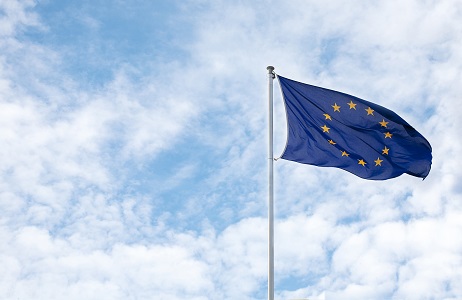Following further negotiations between Downing Street and Brussels in October, the Prime Minister warned UK businesses to prepare for the prospect of a ‘no-deal’ Brexit. Whilst there is still scope for a deal, time is running out and you should, as far as possible, try to plan ahead for the issues a no-deal Brexit could present.
What can you do to prepare for new border formalities?
Arguably, the single biggest Brexit risk is failure to prepare for the new border formalities, the main issues being around the movement of goods between Great Britain, Northern Ireland and the EU.
If you currently buy goods from or sell goods to the EU/UK, you should be mapping your supply chains to ensure you are as well prepared as you can be for a ‘no deal’ Brexit. We have outlined the key points to consider from an import and export perspective but, if you have any concerns or questions, we recommend speaking to your usual UHY adviser who will provide further guidance.
Buying goods from the EU into Great Britain
If you buy goods from the EU, you need to consider who will be responsible for the import of the goods into Great Britain.
If you are responsible, you will need to take the following steps:
- Get a European Union registration and identification (EORI) number that starts with a GB followed by your VAT number. You can apply for an EORI here.
- Make contact with a UK customs intermediary who will clear the goods into Great Britain on your behalf. Customs entry may be delayed for up to six months (30 June 2021) for goods that are not ‘controlled’ (eg. excise goods).
- If you import a high volume of goods, there may be other considerations such as securing a duty deferment account. We recommend seeking professional advice if this is the case.
- From 1 January 2021, VAT registered businesses will be able to begin accounting for import VAT on your VAT Return via the new Postponed Accounting method. This means you’ll declare and recover import VAT on your VAT Return, rather than having to pay it upfront as the goods enter the UK or via an existing duty deferment account.
If your EU supplier is responsible for importation into the UK, you will be charged UK VAT on the supply of goods that were historically accounted for as EU acquisitions.
Special rules apply for consignments with a value of below £135 sold to UK customers that are not VAT registered (eg. private individuals, small businesses etc.). Further details on such supplies can be found here.
If it is unclear who is responsible for the import, clarity must be sought with the supplier. Your terms of delivery will be a good indicator to determine who is controlling the shipment. For example, if your shipping terms are ‘Delivered Duty Paid’ (DDP), the supplier will deliver the shipment to your requested location and will be responsible for the clearing of the goods through Customs and liable for any taxes that may arise. However, if the terms are ‘Free On Board’ (FOB), you will be responsible for the shipment of goods once loaded onto the ship in the country or origin and, therefore, responsible for the import. If there is any confusion over what the contractual shipping terms mean, and the resultant responsibilities in terms of taxes, we recommend seeking professional advice.
Selling goods to the EU from Great Britain
If you sell goods to the EU, you need to determine who will be responsible for the import into the EU.
If you are responsible, you will need to take the following steps:
- Register for VAT in the EU and, if you don’t have an EU establishment, find a fiscal representative.
- Make contact with an EU customs intermediary who will clear the goods into the EU on your behalf.
- If you are a B2C seller, you will no longer benefit from the distance selling thresholds (35,000EUR/100,000EUR) to other EU jurisdictions. Any sales to private individuals will, therefore, result in a VAT registration requirement, unless the private individual takes responsibility for the import. A solution may be to move stock to a single EU member state, VAT register there and make sales from that EU country to non-business customers in other EU member states; thereby taking advantage of the distance selling thresholds available. We recommend seeking further advice on this point.
- From 1 July 2021, there is new EU legislation regarding the sale of B2C goods via Online Marketplaces.
If your EU customer is responsible for the import into the European Union, your sale will fall outside the scope of EU VAT and will likely be treated as a UK export, so the relevant conditions for zero-rating must be met.
Selling digital services B2C to EU customers
If you sell digital B2C services to EU customers, your existing UK Mini One Stop Shop (MOSS) registration will no longer be valid for EU sales and you will need to obtain a new EU MOSS registration here.
Moving goods in and/or out of Northern Ireland
For VAT purposes, Northern Ireland will be treated as the EU from Great Britain’s perspective. The movement of goods between Northern Ireland and Great Britain will be treated as exports/imports while movement of goods between Northern Ireland and the Republic of Ireland will move freely as it will remain in the Single Market. There is more nuance here and we recommend any business working with goods moving in and/or out of Northern Ireland get in touch and seek further advice.
We are here to help
Our VAT experts are on hand to provide support and advice regarding import and export changes and will share further details, as they are released. We also have a dedicated Brexit section which includes information on the key changes and how these could affect you and your business.


